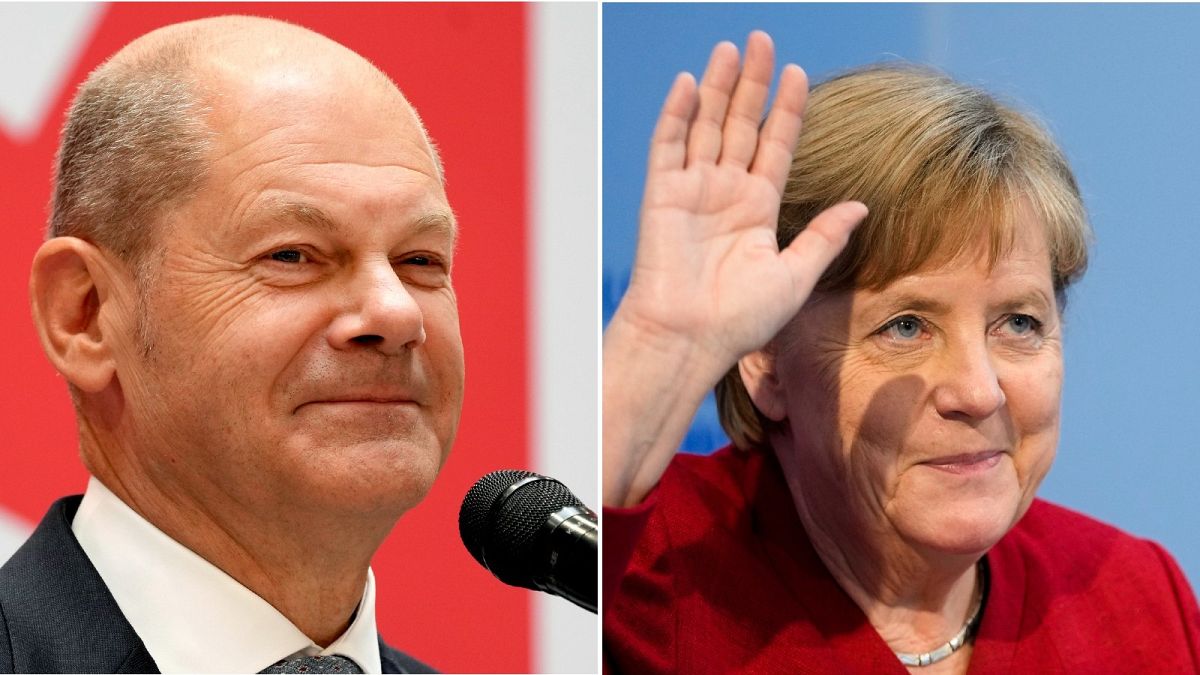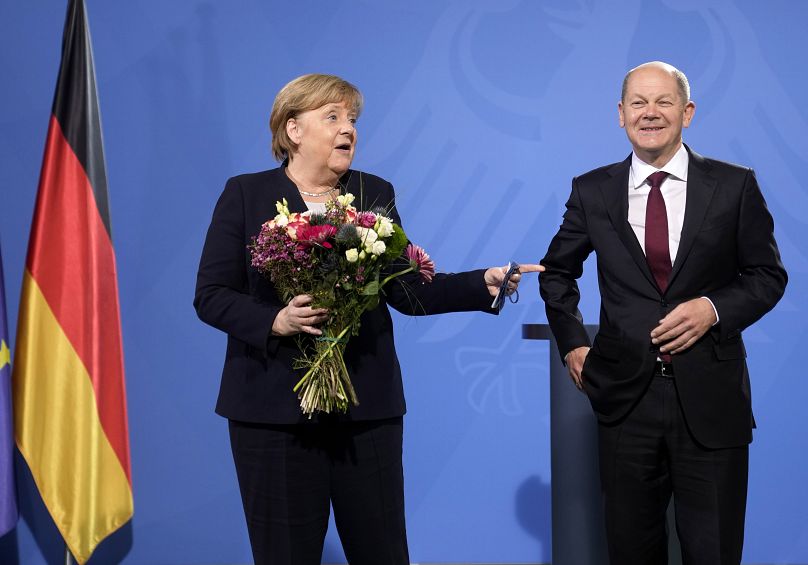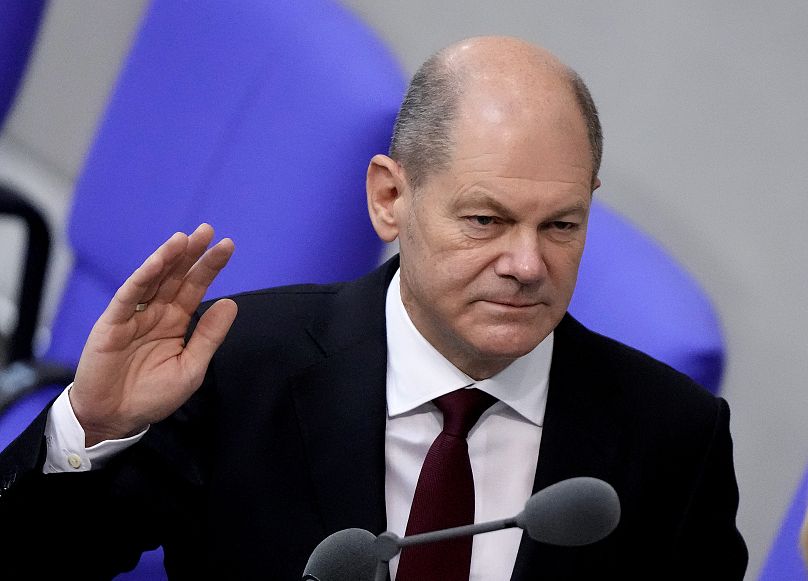Scholz, 63, has been Germany’s vice-chancellor and finance minister since 2018 and is a former mayor of Hamburg.
Olaf Scholz took his oath of office at the Bundestag on Wednesday as he became Germany's new chancellor.
He replaced Angela Merkel, who is standing down after 16 years at the helm.
Scholz, who omitted the optional phrase "so help me God" during the swearing-in ceremony, smiled as he was formally appointed by President Frank-Walter Steinmeier.
Merkel wished Scholz luck at a handover ceremony at the chancellery.
“Take possession of this house and work with it for the good of our country,” she said. Scholz thanked Merkel for her work, telling her “you made your mark on this country.”
Scholz got the support of 395 politicians in the Bundestag on Wednesday morning.
The vote was not a surprise. Scholz's centre-left Social-Democratic party of Germany (SPD) and its coalition partners, the Free Democrats and the Greens, have 416 seats in the 736 lower house of the German parliament.
Scholz said on Tuesday that the new government -- which forces Merkel's Christian Democratic Union (CDU) into opposition for the first time since 2005 -- "takes up the major challenges of this decade and well beyond that".
If it succeeds, he said, “that is a mandate to be re-elected together at the next election”.
Immediate tests ahead
The transfer of power took place as Germany is experiencing the worst wave of the COVID-19 pandemic across its 16 federal states, but Scholz's government will also have to face the long-term challenges of modernising the country and dealing with climate change.
Scholz has already backed a general vaccine mandate, which would see all German residents having to get immunised for COVID-19, but he also said that the lawmakers should decide according to their principles.
“We will pave the way for a decision of conscience by members of the German Bundestag about a general vaccine mandate that will come into force next year, in February or early March, and which everybody can get ready for now,” Scholz said last Wednesday.
“I will vote in favour of such a law,” he added.
The two-month transition that had Merkel serve as caretaker chancellor has been blamed by some for Germany's slow response to the latest wave of infections.
About 68.7 per cent of the population in Germany is fully vaccinated, far below the government’s minimum goal of 75 per cent.
There have been large protests in the country against pandemic measures in the past, and the proposed vaccine mandate is likely to be opposed by some. Yet, opinion polls show most Germans are in favour.
Scholz, 63, has been Germany’s vice-chancellor and finance minister since 2018 and is a former mayor of the city of Hamburg.
A former lawyer who joined the Social Democrats at 17, Scholz had been positioning himself to succeed Merkel for some time.
He quipped on Wednesday that he will stick with Merkel's “northeast German mentality” and that “not so much will change on that front.”
“He was elected because he is very similar to Angela Merkel -- and that was his calculation,” Lars Haider, editor in chief of Hamburger Abendblatt and Scholz’s biographer, told Euronews on Tuesday.
Scholz was credited with the Social Democrats’ surprise win in the 2021 elections, with the party coming from third place in the polls to secure a narrow victory over the CDU. He then quickly assembled a coalition with the German Greens and the pro-business Free Democrats.
Haider, whose book on Scholz will be published in German this week, said that just because Scholz is like Merkel, that does not mean Germany is headed for more of the same. Merkel, he said, was a reactive politician who responded to the political and public mood. Scholz is far more decisive.
“He has clear goals, and he puts things in place in order to achieve them [...]. If it doesn’t work, he says: ‘OK, next time I’ll do it better,” Haider said.


